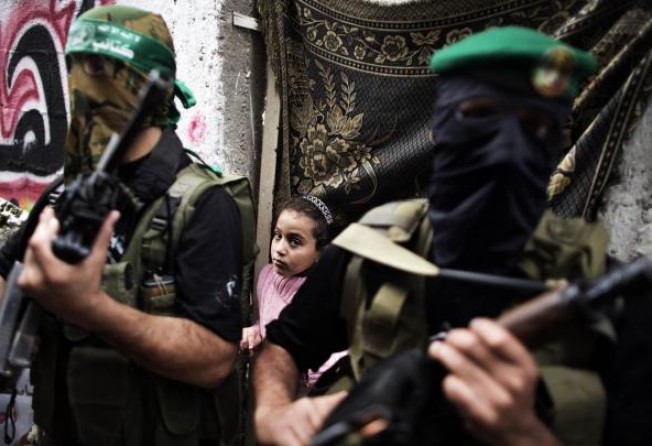Gaza truce splits Israelis, as Hamas claims victory
As Gazans rejoice, on other side some are happy to have avoided invasion, others dissatisfied

Hamas has emerged from battle with the triumphal sense of a hard-won game change: by stopping its offensive when it did, Israel's hardline government seems to have grudgingly accepted that the Islamic militant group cannot soon be dislodged from power in Gaza.
Hamas dared to fire rockets at the Tel Aviv and Jerusalem areas, then stared down threats of a ground invasion to wipe out the group. It emerged with its rule intact, world figures rushing to the region to put out the fire and key Muslim countries openly on its side.
Still unclear is whether the Egyptian-brokered truce can deliver the promised end to Gaza's stifling blockade.
But on Thursday, the first full day of calm after eight days of fighting, the contrast in mood couldn't have been sharper.
Gazans celebrated the cease-fire with fireworks, Hamas militants flaunted their weapons in the streets and a Hamas political leader, Khalil al-Haya, taunted Israel at a victory rally, saying "you can't invade us".
Israel's mood was subdued, with some glad a costly ground invasion had been averted, but others disappointed by the inconclusive end of the offensive. Unlike in previous military campaigns against Hamas, Israel had set the bar low from the start, saying it only wanted to end the Gaza rocket fire, not topple the Islamists in charge of the Palestinian territory since they seized it from their rival, Palestinian President Mahmoud Abbas, in 2007.
The offensive had started seemingly unexpectedly, with the assassination of the Hamas military chief with a missile strike on his moving car on November 14. Over eight days, Israel's military struck some 1,500 Hamas-linked targets in Gaza and massed troops on the border, while Israel's leaders threatened a bruising Gaza invasion, just like the one they staged four years earlier.
But Israel did not send in troops, even after Hamas barraged the Jewish state with hundreds of rockets, including several falling close to the heartland cities of Tel Aviv and Jerusalem.
Israeli Defence Minister Ehud Barak, pushing back Thursday against those clamouring for a decisive blow against Hamas, said he was not willing to embark on a military adventure and risk antagonising the international community.
"Hamas won't be toppled unless Israel retakes Gaza, but I'm not sure that would be wise," Barak, one of Israel's most experienced military strategists, acknowledged on Israel Army Radio.
Israel underestimated Hamas and "fell into a trap", claimed a leading Hamas hardliner in Gaza, Mahmoud Zahar.
Other Hamas leaders bragged that their improved arsenal, including longer-range rockets and anti-tank missiles smuggled from Iran via tunnels under the Gaza-Egypt border, helped deter Israel's military.
But a bigger factor may have been the change of leadership in Egypt. Four years ago, Egypt was ruled by pro-Western Hosni Mubarak, who helped keep Hamas isolated. This time around, Hamas had an effective ally in Mubarak's successor, Mohammed Mursi.
On Thursday evening, a senior Israeli official arrived in Cairo for follow-up talks with Egyptian intelligence. Earlier in the day, the Egyptian intelligence chief had met with the top Hamas leader in exile, Khaled Meshaal, and the head of the smaller sister group Islamic Jihad, Ramadan Shalah, according to Shalah's deputy Ziad Nakhaleh.